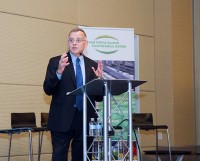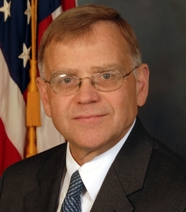FST: How have the evolution of technology and the emergence of food safety culture helped drive change?
Taylor: There’s been a lot of progress around. Going back to the meat sector, there are the basic sanitizing technologies that weren’t in existence pre-Jack in the Box to try to deal with pathogens that enter a slaughter facility with the live animals. And there are also more high tech things going on: Whole genome sequencing, for example, is a way to link cases and identify outbreaks. I think a lot of people see it as a technology that can give very robust information about where hazards are in the food supply and help focus preventive efforts. The use of environmental monitoring in prevention is another technology or practice.
Another example of where the technology is evolving in response to regulation (but even independent of it)— leading food safety companies are implementing new technologies because they are responding to the high consumer expectations around food safety and the cost of failing to prevent from an economic business destruction standpoint.

Food safety culture is an overlay here that is a meaningful way to think about what the path is, because it taps into the understanding that if you haven’t instilled the right understanding in every employee about why food safety must be a primary value to the business, you haven’t instilled it from the top down. You have much less assurance that every day every person will do their job in a way that the plan is designed to have people do their job. Continuous improvement is an inherent element of a strong food safety culture. This idea of food safety culture, which certainly pre-dated FSMA but is reinforced by FSMA, I think you’ll continue to see a positive evolution that expands the universe of participants in food production who are formally embracing it as a tool for improving their performance on food safety.
FST: What does the future hold?
Taylor: I indulge in the cliché that food safety is not a destination; it’s a journey. I think we’ll continue to progress up the ladder and broaden the implementation of these now regulatory requirements and the broader idea food safety culture. Tackling this from a global food standpoint will continue to be a huge challenge, both for leading companies who have been managing global supply chains for years as well as in emerging markets and developing countries that are aspiring to become part of global food system. They are increasingly looked to as sources of raw materials for food production, not only within developing regions but also outside. In those regions, which are starting from behind in terms of food safety related capacity both public and private, how do you bring them along and invest in their capacity and expand these modern food safety principles and practices? That’s a big challenge that lies ahead.




Couldn’t disagree more. I can in food plants every week and most are still using pencil, paper and manual efforts to do everything.
No real-time visibility, no transparency into what’s happening and these people use paper and people to address food safety. Paper and people don’t scale. Can you imagine Amazon or Tesla using paper and people to address product quality or safety? Me either!